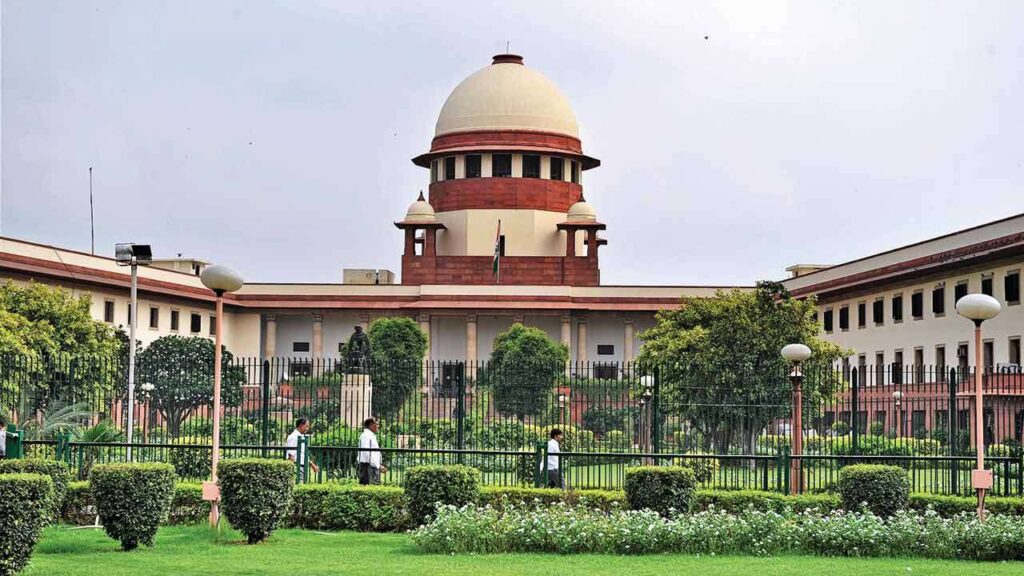Shreya Gupta
On February 3, 2025, the Supreme Court of India provided a crucial relief to homebuyers, emphasizing that the forfeiture of earnest money upon cancellation of flat bookings must be reasonable and not excessive enough to amount to a penalty under Section 74 of the Indian Contract Act, 1872. The Court took a strong stance against real estate developers who incorporate one-sided and excessive forfeiture clauses in builder-buyer agreements, categorizing such practices as “unfair trade practices” under the Consumer Protection Act. A bench comprising of Justices B.R. Gavai and S.V.N. Bhatti examined the enforceability of such forfeiture clauses, ultimately ruling that they must be fair and equitable rather than arbitrary.
The dispute arose when homebuyers booked an apartment in the Godrej Summit project in Gurgaon in 2014 and later canceled their booking in 2017 after the apartment was ready for possession. The builder, Godrej Projects Development Ltd., invoked a clause in the Apartment Buyer Agreement (ABA) that allowed it to forfeit 20% of the earnest money upon cancellation. However, the homebuyers contested this forfeiture, arguing that the clause was excessively punitive and amounted to a penalty rather than a reasonable deduction. They further contended that the booking cancellation was not a contractual breach that would warrant such a heavy forfeiture.
The National Consumer Disputes Redressal Commission (NCDRC) ruled in favor of the homebuyers, stating that the builder could forfeit only 10% of the Basic Sale Price (BSP) instead of 20%. The NCDRC also directed the builder to refund the remaining amount with an annual interest of 6%. Dissatisfied with this decision, the builder escalated the matter to the Supreme Court. However, the Supreme Court upheld the NCDRC’s ruling, reaffirming that the 20% forfeiture was excessive, arbitrary, and an unfair trade practice. The Court highlighted that the Agreement was drafted in a manner heavily favoring the developer, leaving buyers with no negotiating power.
In arriving at this decision, the Court referenced several landmark cases, including Pioneer Urban Land and Infrastructure Limited v. Union of India (2019) 5 SCC 725, DLF Ltd. v. Bhagwanti Narula (2015 SCC OnLine NCDRC 1613), and Ireo Grace Realtech Private Limited v. Abhishek Khanna (2021) 3 SCC 241. These cases established the precedent that inserting one-sided, unfair clauses in builder-buyer agreements amounts to an unfair trade practice under Section 2(1)(r) of the Consumer Protection Act, 1986. The Court reiterated that such clauses are unenforceable because buyers have no real choice but to accept them, effectively signing contracts that unfairly benefit builders.
Furthermore, the Supreme Court drew upon the landmark judgment in Central Inland Water Transport Corporation Limited v. Brojo Nath Ganguly (1986) 3 SCC 156, wherein the Court invoked Article 14 of the Indian Constitution to hold that the Courts will not enforce unfair and unreasonable contracts, particularly in cases where the parties do not have equal bargaining power. This case established that when a contract is imposed on a weaker party without negotiation, it cannot be considered legally binding in a just and fair manner. The Supreme Court applied this principle to builder-buyer agreements, reinforcing that a contract cannot be enforced simply because a buyer signed it if the terms were inherently unfair and exploitative.
By affirming the principle of fairness in contractual terms, the Supreme Court has reinforced that consumer rights must be safeguarded against exploitative practices in the housing sector.
Case Title: Godrej Projects Development Limited v. Anil Karlekar & Ors.
Case Number: CIVIL APPEAL NO. 3334 Of 2023
Bench: Justice B.R. Gavai and S.V.N Bhatti
Click here to access the order
Instagram: Click here.
LinkedIn: Click here.
For Collaboration and Business: info.desikaanoon@gmail.com

